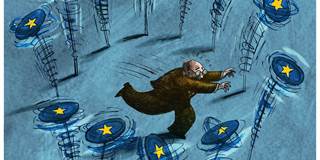Europe’s Responsible Solidarity
If Europe is to reverse the growing divisions among eurozone countries, it must extend the principle of shared responsibility to all major EU economic-policy initiatives. But doing so requires a broader view of supranational coordination, with all the implications for political legitimacy and accountability that would follow.
ROME – Next year will be crucial for the European Union. EU citizens will elect a new European Parliament, which will vote for a new president of the EU Commission. There will be a new president of the European Council and a new high representative for foreign and security policy as well.



ROME – Next year will be crucial for the European Union. EU citizens will elect a new European Parliament, which will vote for a new president of the EU Commission. There will be a new president of the European Council and a new high representative for foreign and security policy as well.